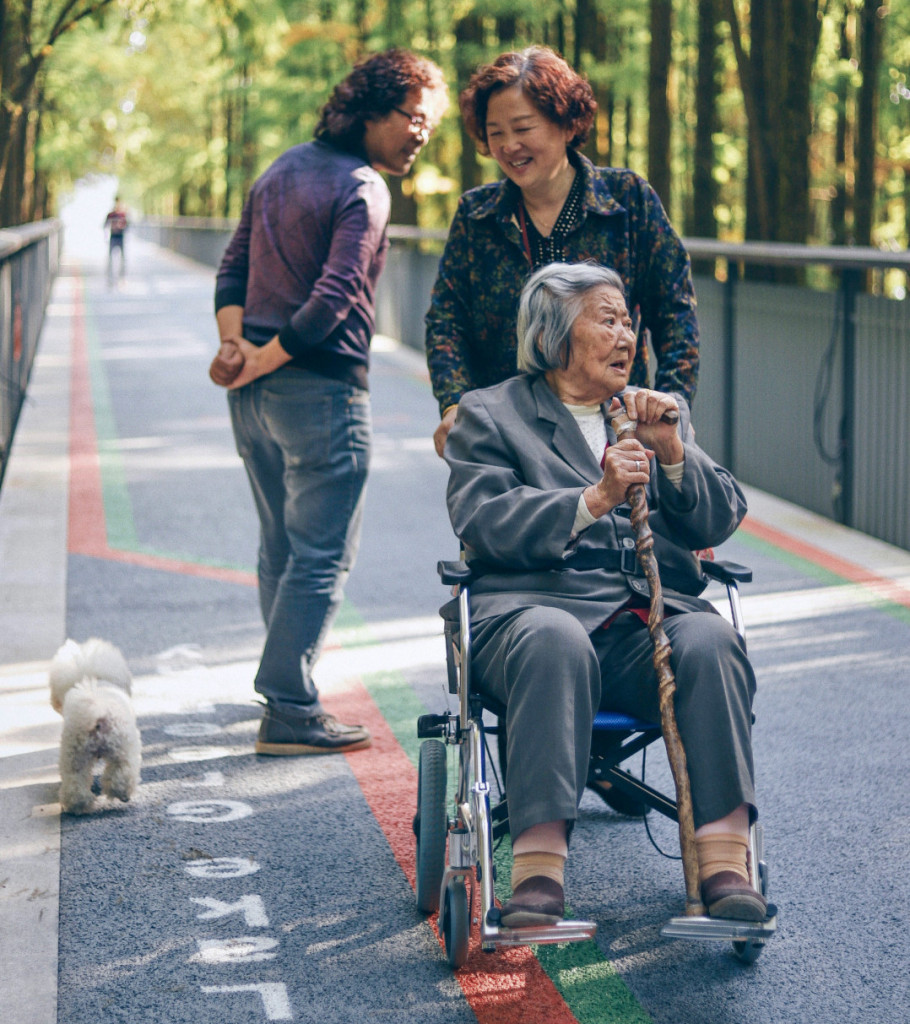
Family is the cornerstone of life, and U.S. immigration law recognizes this by offering specific legal pathways for citizens and lawful permanent residents (green card holders) to sponsor their loved ones. At Herman Legal Group, we are dedicated to helping you bring your family together in the United States through professional legal support, personalized strategies, and over 30 years of trusted immigration law experience.
Immigrating to the United States is an exciting but complicated process. Helping a loved one immigrate to the U.S. can often be overwhelming. Whether you are trying to obtain a family green card or a fiancé visa, identifying and managing the proper immigration documentation and procedures is very complex.
Richard Herman and the dedicated immigration attorneys at Herman Legal Group have protected thousands of families facing U.S. immigration authorities in Cleveland, Columbus, Detroit and beyond.

Family-based immigration allows U.S. citizens and green card holders to petition for certain family members to immigrate to the United States. The process involves petitioning for your relative, proving the relationship, meeting income requirements, and either adjusting their status in the U.S. or helping them go through consular processing from abroad.
The legal path depends on your status (citizen or green card holder), the type of relationship, and your family member’s location. Our attorneys assess every detail to ensure the best route with minimal delays or risks.

Immediate relatives of U.S. citizens – spouses, minor children, and parents – do not have to wait for a visa number; they can proceed as soon as the petition is approved.
Family preference categories, on the other hand, are subject to annual numerical limits. This can lead to long wait times, especially for categories like siblings of U.S. citizens or adult children of green card holders. We help clients navigate this system, track priority dates, and avoid unnecessary delays.
U.S. citizens and permanent residents are eligible to sponsor different categories of relatives. Here’s how it works

Our firm handles:

As a sponsor, you must prove your income is at or above 125% of the federal poverty guideline. If you fall short, we help add a joint sponsor. We also ensure the Form I-864 Affidavit of Support is filed correctly to avoid RFE delays.
In preference categories, your “priority date” determines your place in line. We continuously monitor the Visa Bulletin file as soon as your date becomes current, and explore strategies like cross-chargeability to speed things up.

If you are engaged or recently married, congratulations! This is an exciting time in the lives of any new couple. But if your new spouse is not a United States citizen, you may have some concerns about what will happen legally once you return from your honeymoon.Many couples in your situation are eager to get a green card (also known as lawful permanent resident status) for the new non-citizen spouse, which can lead to benefits such as the right to work in the country.
Whether you’re a U.S. citizen or lawful permanent resident, filing a marriage-based green card petition (Form I-130) for your spouse is a powerful way to bring your partner to the U.S. or legalize their stay. We guide couples through both available processes:
Our team ensures all documents, from marriage certificates to joint financial records, are meticulously reviewed to reduce the risk of denials or delays.
U.S. citizens can file I-130 petitions for their parents, siblings, and both minor and adult children. Green card holders can file for their unmarried children
We help organize necessary birth records, proof of relationships, and monitor visa bulletin movement to time each phase accurately.
If you’re a U.S. citizen engaged to a foreign national, the K-1 visa allows your fiancé(e) to come to the United States so you can get married within 90 days of arrival.
After marriage, your spouse can apply for a green card through adjustment of status. We assist in filing Form I-129F, preparing evidence of a bona fide relationship, and ensuring you meet all requirements such as having met in person within the past two years.
If your spouse received a 2-year conditional green card, you must file Form I-751 to remove conditions and obtain a 10-year green card.
We help prepare strong joint petitions or assist in filing for a waiver if:
A detailed and well-documented I-751 package is crucial to prevent RFEs or denials.

Some marriage-based cases involve serious complications such as:
We defend your rights, respond to USCIS challenges with strong legal arguments, and provide waivers when necessary:
Adjustment of Status is for those already lawfully present in the U.S. Your family member can file Form I-485 after the I-130 is approved. This route avoids traveling abroad and is typically smoother if eligibility is met.
Consular Processing is for family members abroad. After USCIS approves the I-130, the case goes to the National Visa Center and then to the U.S. embassy or consulate in the home country. We help manage timelines and document flow to avoid delays or refusals
Many immigrants face challenges like unlawful presence, misrepresentation, or prior removals. We offer extensive support for:
These waivers require legal arguments and documentation to show extreme hardship to the U.S. relative. We work with therapists, evaluators, and community leaders to build winning cases.

Head Office OH
408 West Saint Clair Avenue, Suite 230 Cleveland, OH 44113

Phone Number
+1-216-696-6170

Email Address
richardtmherman@gmail.com
Help for Family-Based Immigration address the key questions families have when sponsoring loved ones for U.S. residency. They cover eligibility for spouses, children, parents, and siblings, as well as processing times, petition requirements, and green card pathways.
U.S. citizens can sponsor a wider range of relatives, including parents and siblings, while green card holders are limited to spouses and unmarried children.
Processing times vary depending on the family relationship and whether the petitioner is a citizen or green card holder. It can range from several months to several years.
Generally no. For a K-1 visa, you must have met your fiancé(e) in person within the past two years, unless exceptional hardship applies.
They may still qualify for relief through waivers or other legal pathways. We analyze each case carefully for options.
CLEVELAND (HEADQUARTER)
© Copyright 2025, HLG, LLC. All Rights Reserved